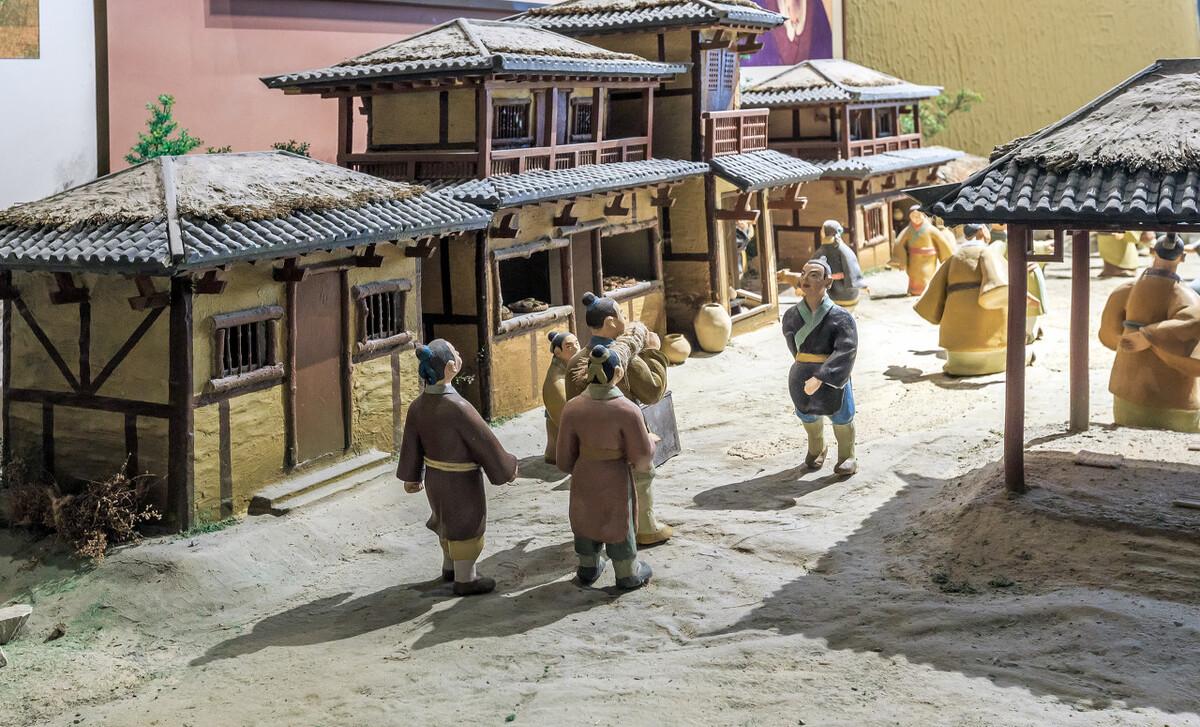In people's hearts, when people mention Yelang, they will naturally associate with the idiom that has been passed down for thousands of years: Yelang is arrogant. Night lang arrogance has become synonymous with self-righteousness and arrogance.
The allusion comes from a story recorded in the Records of History: in 122 BC, the Han Dynasty sent emissaries to Yelang, passing through Yelang's neighboring state of Dian (present-day Yunnan Province) on the way. When the emissary met with the King of Dian, the King of Dian asked curiously, "Which is greater than the Han Dynasty and my country?" The emissary was shocked when he heard this, he did not expect that this small country, unexpectedly, did not know the height of the sky, and dared to compare its own poor countryside with the Tangtang Han Dynasty. What also surprised him was that later when he arrived in the Yelang Kingdom, the proud and ignorant Yelang Hou, not knowing that the country he ruled was only about the same size as a county in the Han Dynasty, actually asked the messenger the same question: "Which is the greater of the Han Dynasty and my country?"

A small country in the southwest region, actually compared with the territory of the Han Dynasty, really did not know the height of the sky, which left a deep impression on people, since then, "Night Lang" and "arrogance" have been closely linked. So, is Night Lang really arrogant?
It is mentioned in the "Chronicle of History" that the cause of Yelang's arrogance was: in the first year of the Yuan Dynasty (122 BC), Zhang Qian returned from the Western Regions and told Emperor Wu of Han that he had seen native products from Sichuan when he was in India, so it was inferred that long before he explored the Way of the Western Regions, the circulation of folk commerce in the southwest could be from the southwest to India, and from the southwest to the western regions, "suffering from the Xiongnu across their roads, chengtong Shu (present-day Sichuan), poisoning the country (present-day India), the road is close, beneficial and harmless." He suggested that Emperor Wudi of Han open a road to the Western Regions, so Emperor Wudi of Han sent emissaries to the southwest to explore the road to India. While passing through Yunnan, the emissaries visited the then King of Dian and met with the princes of several small countries in the southwest. Because the roads were not smooth and the traffic was inconvenient at that time, the princes lived in various places, and they did not know how large the Han Dynasty was, so the King of Dian asked the Han emissaries: "Which is the greater han than me?" Meaning: "Which is bigger than my country?" The same was true of the night lang and all of you here.
From this, it can be learned that it was the King of Dian who asked this question first, and the Night Lang Hou was in the back, and as a result, the Night Lang Hou suffered for others. How big is Night Lang?
The name of Yelang first appeared in the history of history. The first sentence of the "Chronicle of the Southwest Yi Lie" says: "The southwest Yijun is the longest, and the night lang is the largest." How big is Night lang? He didn't know either.
The Book of later Han traces the scope of Yelang in the Warring States period: the eastern border is jiaotong, the western Dian kingdom, and the northern Qiongdu kingdom. That is to say, the Yelang State at that time covered most of Guizhou, Yunnan, Sichuan, Guangxi, and parts of Hunan. At that time, this was indeed enough to say "big".
As far as the matter itself is concerned, whether it is the King of Dian or the Marquis of Yelang, it is because the vision is not broad and the lonely and unheard of will ask such questions. The reason is that both of them are fangguo in the mountains, even now the traffic is more restricted, more than two thousand years ago, it was even more obstructed by mountains and waters, and occasional visitors from outside the mountains came and rushed to inquire about the world outside the mountains, which was a common sentiment of people, rather than arrogantly calling the Han Dynasty.